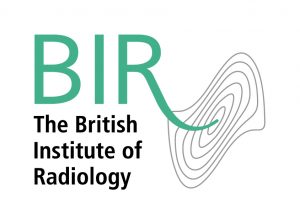Changes to Ionising Radiation Regulations
In 2013, the European Union adopted Directive 2013/59 Euratom commonly known as the European Basic Safety Standard. This directive is required to be implemented within UK law by February 2018. This requires the replacement of The Ionising Radiation (Medical Exposure) Regulations (or IRMER for short) 2000 and The Ionising Radiations Regulations 1999. In addition, a UK policy decision has been taken to repeal The Medicines (Administration of Radioactive Materials) Regulation 1978 and transfer the requirements into the 2018 regulations.
It is important to note that these regulations are still subject to final approval and although they are not a ‘revolution’ from the existing standards, there are some important changes which anyone working within ionising radiation environments need to be aware of.
The following is a summary of changes outlined in a recent briefing by The British Institute of Radiology (BIR) and supported by The Society for Radiological Protection (SRP).
Ionising Radiation (Medical Exposure) Regulations 2018 (IRMER 2018)
Licensing
IR(ME)R 2018 will introduce a new dual licensing system for employers and practitioners who are involved in the administration of radioactive substances to patients as part of their diagnosis, treatment or research. This new arrangement will provide a clear distinction in the responsibilities of the employer and the practitioner. The existing Administration of Radioactive Substances Advisory Committee (ARSAC) will still be involved in assessing the suitability of an applicant’s knowledge and experience.
Changes in the role of the Medical Physics Expert
The role of the Medical Physics Expert (MPE) is clearly defined in the new regulations and require national recognition (certification). A medical radiation employer will be required to appoint a suitable number of MPEs in specific areas such as diagnostic X-ray, nuclear medicine and radiotherapy. There are broadly four areas that the MPE is expected to be involved: patient dosimetry; equipment management; optimisation and advice on regulatory compliance
Changes to clinical responsibility
The new legislation does not propose any changes to the responsibility of practitioners and operators for justification and optimisation. However, it does reinforce the need for the availability of referral criteria, the use of diagnostics reference levels, better communication and the importance of clinical audit.
Information on benefits and risks
The new regulations specifically require employers to ensure that an individual patient is informed of the benefits and risks of a procedure prior to the exposure taking place. How this will be carried out in practice is a subject of much debate at the present time.
Similarly, individual comforters and carers who support and comfort a person undergoing a radiation exposure, must do so knowingly and willingly. Therefore the exposure of the comforter or carer must be justified and they must be informed of the risks prior to the exposure taking place.
Non-medical imaging
The scope of the IR(ME)R 2018 regulations includes situations where medical equipment is used for non-medical imaging purposes. This includes: occupational health surveillance; radiological health assessment (for employment, immigration, or insurance); concealed objects within human body; and age assessment. More importantly it now includes imaging in Sport (not for medical care but to aid decisions on selection, training and nutrition) and to assess the physical development of children with view to a career in sport, or dancing etc.
Employers involved in these applications will require the services of a Medical Physics Expert.
Ionising Radiation Regulations 2017 (IRR17)
Notification, registration and consent
The HSE will introduce a new graded approach for employers to follow if they carry out a practice using ionising radiation. Dependent on the type and level of radiation used, employers will need to inform the HSE via one of three categories; notification, registration or consent. This process will be implemented through an on-line portal and each registerable practice will require a separate application.
Changes to the eye dose limit
One of the biggest changes in the new legislation is the occupational dose limit for the lens of the eye which will reduce from 150 mSv pa to 20 mSv pa averaged over 5 years with no single year exceeding 50 mSv. Anyone who may exceed this dose limit will need to be classified.
Effective dose monitoring will therefore be required. A dedicated eye dosemeter will need to be worn by classified staff. For non-classified staff, a dosemeter worn around the collar area, outside of any PPE (lead apron or thyroid collar) may give an indication of eye dose.
Changes to the classification of ‘Outside Workers’
The definition of “Outside worker” has changed and introduces specific requirements (training, radiation monitoring) for all employees who enter and work in another employers’ radiation controlled areas and who are likely to exceed doses public dose limits. Previously these only applied to classified workers.
It must be remembered that whilst the changes outlined give some guidance to the new legislation, these are not finalised and so may be subject to change. We will keep you informed over the next coming months as final approvals are made.
Footnote:

The British Institute of Radiology is the international membership organisation for everyone working in imaging, radiation oncology and the underlying sciences.
The organisation aims are to:
- Support the work of our members and their colleagues to achieve professional excellence
- Provide continuing professional development for our multidisciplinary community
- Publish cutting edge research for our authors and readers across the world
- Influence and connect with the wider professional sector

SRP was granted a Royal Charter in 2007 and has over 2200 members from a variety of sectors all involved with the safety aspects relating to the use of ionising and non-ionising radiation. Members of SRP provided support to the Health and Safety Executive’s (HSE) Working Group implementing the European Directive into UK Law and co-ordinated responses from members to the HSE consultation exercise. SRP is committed to provide up to date information to its members and organised briefings by HSE and the Department for Business and Industrial Safety (BEIS) to the radiological community in London, Manchester and Glasgow.



